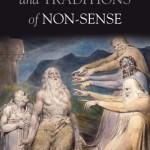We run our website the way we wished the whole internet worked: we provide high quality original content with no ads. We are funded solely by your direct support. Please consider supporting this project.
Speaking of Tragedies
 Since we’ve been reflecting on recent tragedies and the varying responses to them, we thought we would add this voice to the mix. This article from the New Yorker points out the differences in media coverage between the Aurora shootings and the shootings at the Sikh temple in Wisconsin.
Since we’ve been reflecting on recent tragedies and the varying responses to them, we thought we would add this voice to the mix. This article from the New Yorker points out the differences in media coverage between the Aurora shootings and the shootings at the Sikh temple in Wisconsin.
From the article:
Sadly, the media has ignored the universal elements of this story, distracted perhaps by the unfamiliar names and thick accents of the victims’ families. They present a narrative more reassuring to their viewers, one which rarely uses the word terrorism and which makes it clear that you have little to worry about if you’re not Sikh or Muslim. As a Sikh teaching at a Catholic university in the Midwest, I was both confused and offended by this framing. One need not be Pastor Niemöller to understand our shared loss, or to remember that a similar set of beliefs motivated Timothy McVeigh to kill a hundred and sixty-eight (mainly white) Americans in Oklahoma City.
Image by Alan Cleaver. Used in accordance with Creative Commons. Sourced via Flickr.
Category: General
Tags: Problem of Evil, Racial Reconciliation
Related Reading

Lord Willing? Part 2
In Part 2 of Greg’s interview of Jessica Kelley about her book Lord Willing?, they discuss the theology that helped Jessica through her son Henry’s illness and death. You can find Part 1 of the interview here, and part 3 here.

Tragedy Strikes and Coherence Goes Out the Window
I encourage you to read Aurora shooting inspires various perspectives on God and belief, written by Electa Draper and published on the front page of the Denver Post Monday. The article shows how differently believers process tragedies, and illustrates the centrally important role one’s picture of God plays in these responses. For today, I’d like…

Life and Death in Haiti
Sometimes it’s important to hear about other lives, much sadder and difficult than our own, to reorient us to what is most important. In this season of elections that can be so divisive and in an economy that seems so fragile and creates hardship for many of us, it’s important to remember that we are…

Why Compatibilistic Freedom Does Not Make Sense
Compatibilism is the view that free will is compatible with determinism. In this view, freedom is defined as the ability to do what you want, though what you want is determined by factors outside of you. Theologians who espouse this perspective, hold that God ultimately determines what individuals want. This is in contrast to “self-determining…

A Step Toward Racial Reconciliation
In this sermon clip, Greg, as a representative of a white man in America, asks for forgiveness of people of color for all the harm that white America has done. This is not about disparaging whiteness. This is simply about acknowledging the truth of our heritage so that we can make a way for healing,…

God of Sense and Traditions of Non-Sense
As the title suggests, in his book, God’s Problem: How The Bible Fails to Answer Our Most Important Question – Why We Suffer, Bart Ehrman argues that the Bible has nothing compelling to say about the problem of evil. Well, I just put down a beautifully written four-hundred and fifty page book that compellingly argues…
